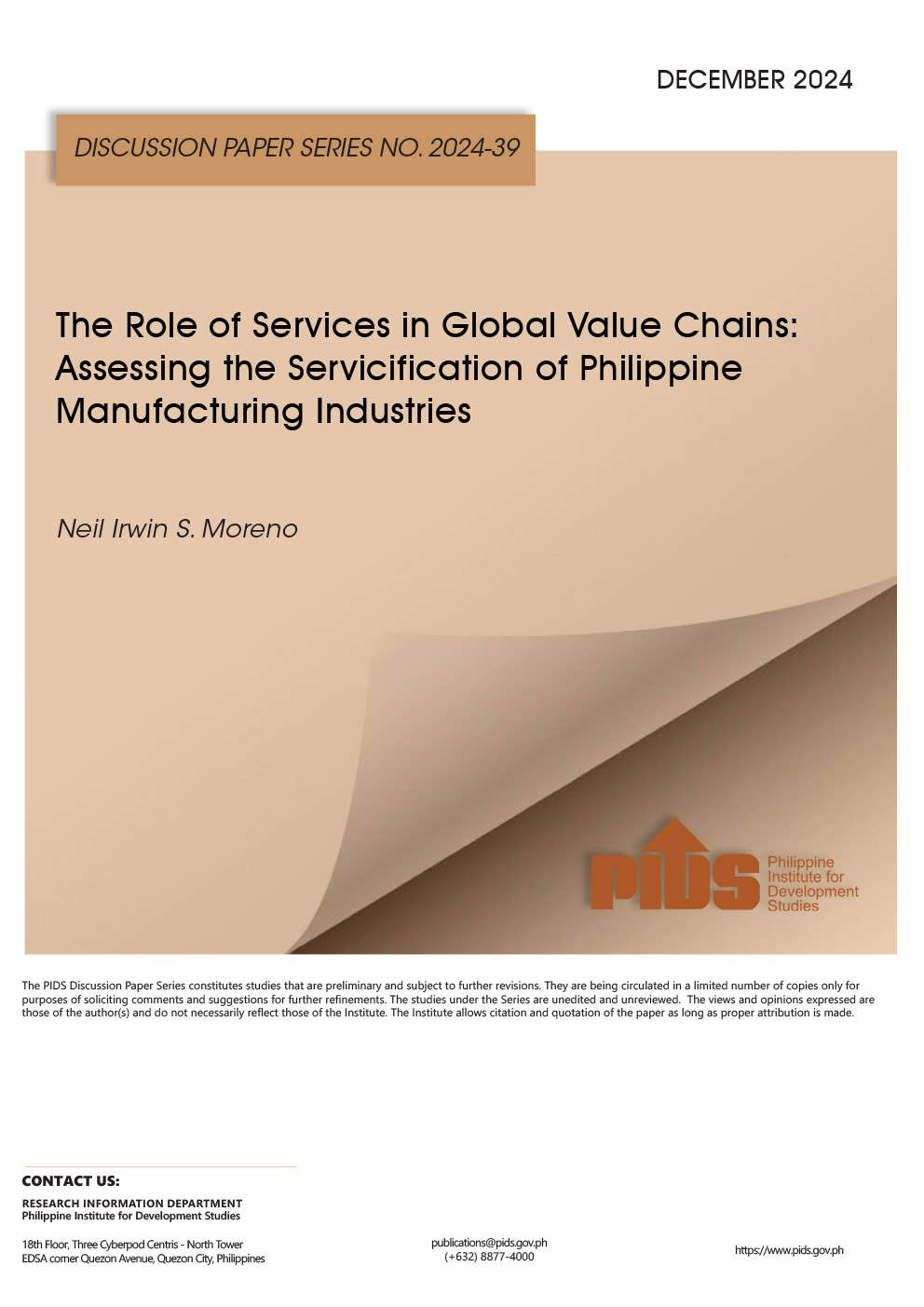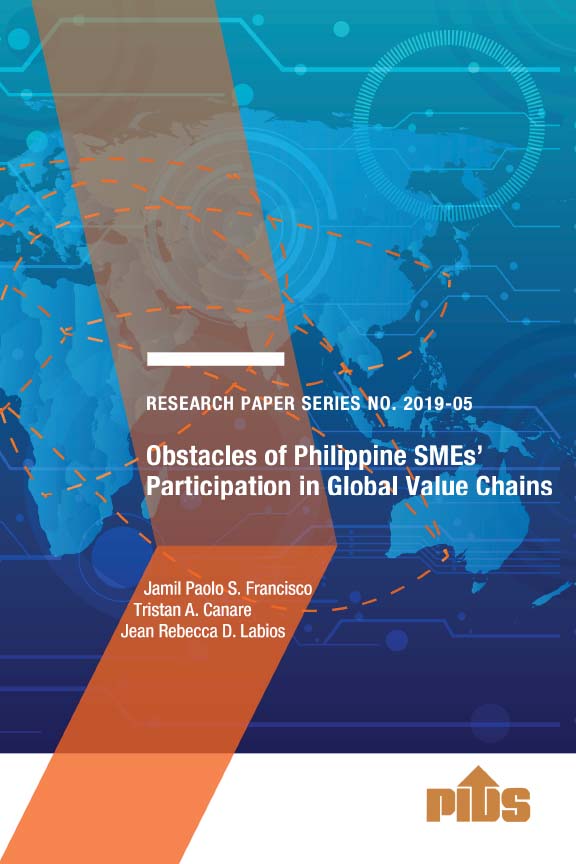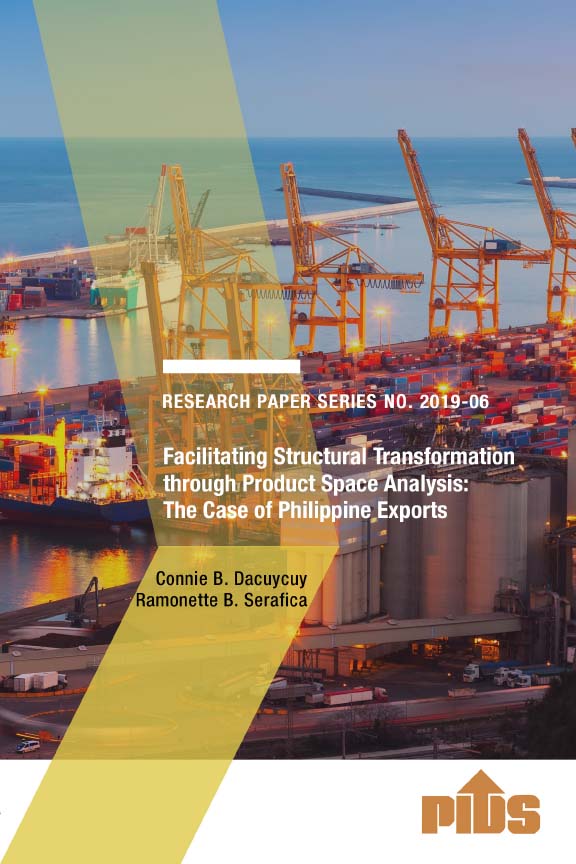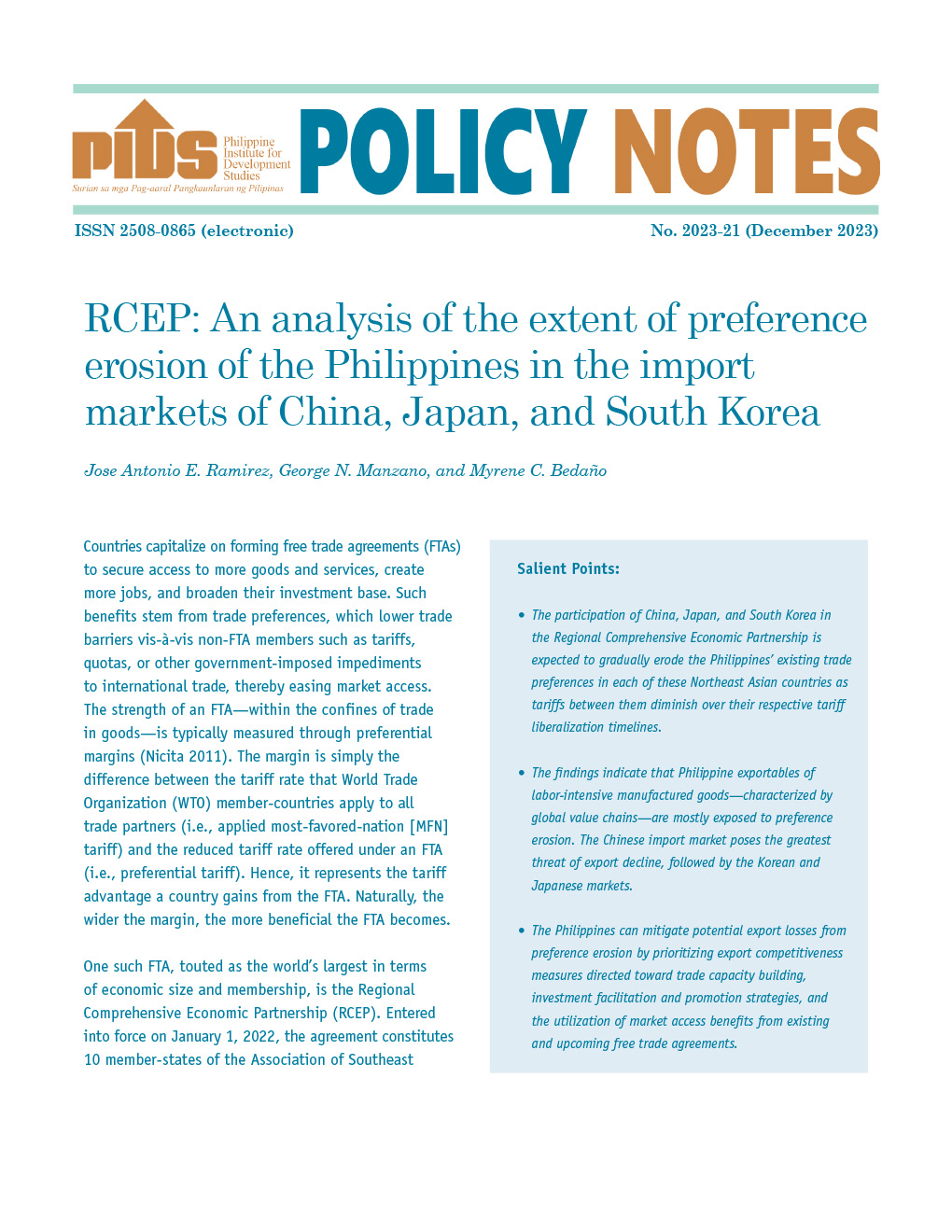The emergence of global value chains (GVCs) in recent years has highlighted the increasing reliance of manufacturing industries on services. Manufacturing firms have intensively used service inputs, performed in-house service activities, and sold services embedded in or bundled with goods. Considered a services economy, the Philippines could leverage services to develop a competitive manufacturing sector and strengthen GVC integration. This study assessed the servicification of the Philippine manufacturing sector in the context of trade and GVCs. Using trade in value added data, evidence shows that the contribution of services to Philippine manufacturing exports has been on par with that of regional neighbors; however, Philippine manufacturing has had weak linkages with modern services, such as ICT and business services. Based on establishment surveys and censuses, Philippine manufacturing firms extensively use service inputs, but R&D activities and the sale of services have been less common. The relationship between servicification and export participation was estimated, revealing that the sale of industrial services, utilization of transport services, and employing R&D personnel were associated with a higher probability of exporting. Drawing from the empirical findings, there is a need to develop the country’s modern services sectors and strengthen their linkages with manufacturing industries. Promoting R&D and innovation among firms could also enhance capabilities, making them competitive in entering export markets. Moreover, firms looking to export could benefit from potential reductions in transport and logistics costs brought about by the streamlining of transport regulations and procedures.
Comments on this paper are welcome within 60 days from the date of posting. Email publications@pids.gov.ph.
Citations
This publication has been cited 1 time
- Manila Bulletin. 2024. Local manufacturing losing ground in global value chains. Manila Bulletin.













